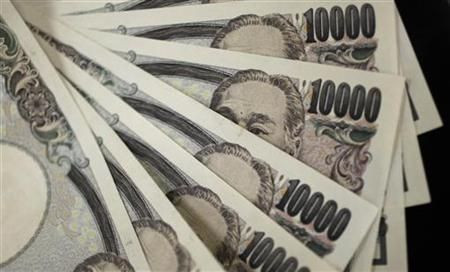Bank Of Japan Keeps Policy Rate And Measures Unchanged

The Bank of Japan Thursday kept its key policy rate unchanged and refrained from announcing any monetary easing measures citing that the country's economy is picking up moderately.
Following its two-day policy meeting, the BoJ said that it would not announce further monetary easing measures. The central bank kept the policy rate between 0 and 0.1 percent and also left the Asset Purchase Program (APP) at 70 trillion yen ($891 billion).
Investors were expecting that the BoJ would need to expand its APP with Japan's economy having lost its growth momentum faced with deflation and strengthening of the Japanese yen. Those who were expecting a coordinated response to the euro zone crisis by the major central banks could be discouraged by the announcement.
Market players sense that BOJ does not want to ease policy unilaterally on euro zone concerns. At the same time, it is expected to remain alert in order to respond in a coordinated manner with other central banks. It is also critical to have the monetary easing at the right time as advance action may be poorly targeted and ineffective and may need to be repeated.
In June, Japan reported that its gross domestic product (GDP) rose 1.2 percent in the first quarter as compared to the last quarter of the previous year. The eco-car subsidy helped drive consumer spending and public investment increased as earthquake-related reconstruction work got underway.
Meanwhile, the dependence on government support is worrying as a rise in tensions in the euro zone has hurt consumer and business confidence and is likely to weigh on private sector spending as the government support weakens. There is an increase in construction projects due to the tsunami in March 2011. However, apart from the boost from the reconstruction spending, which largely reflects the replacement of lost assets, economic fundamentals are also relatively weak.
A major worrying factor is the strengthening of the yen, especially due to global factors. A weaker yen would help the Japanese exporters, but the Ministry of Finance is unlikely to succeed in delivering it while investors seek to escape the euro zone crisis.
© Copyright IBTimes 2025. All rights reserved.





















